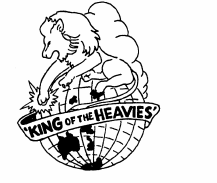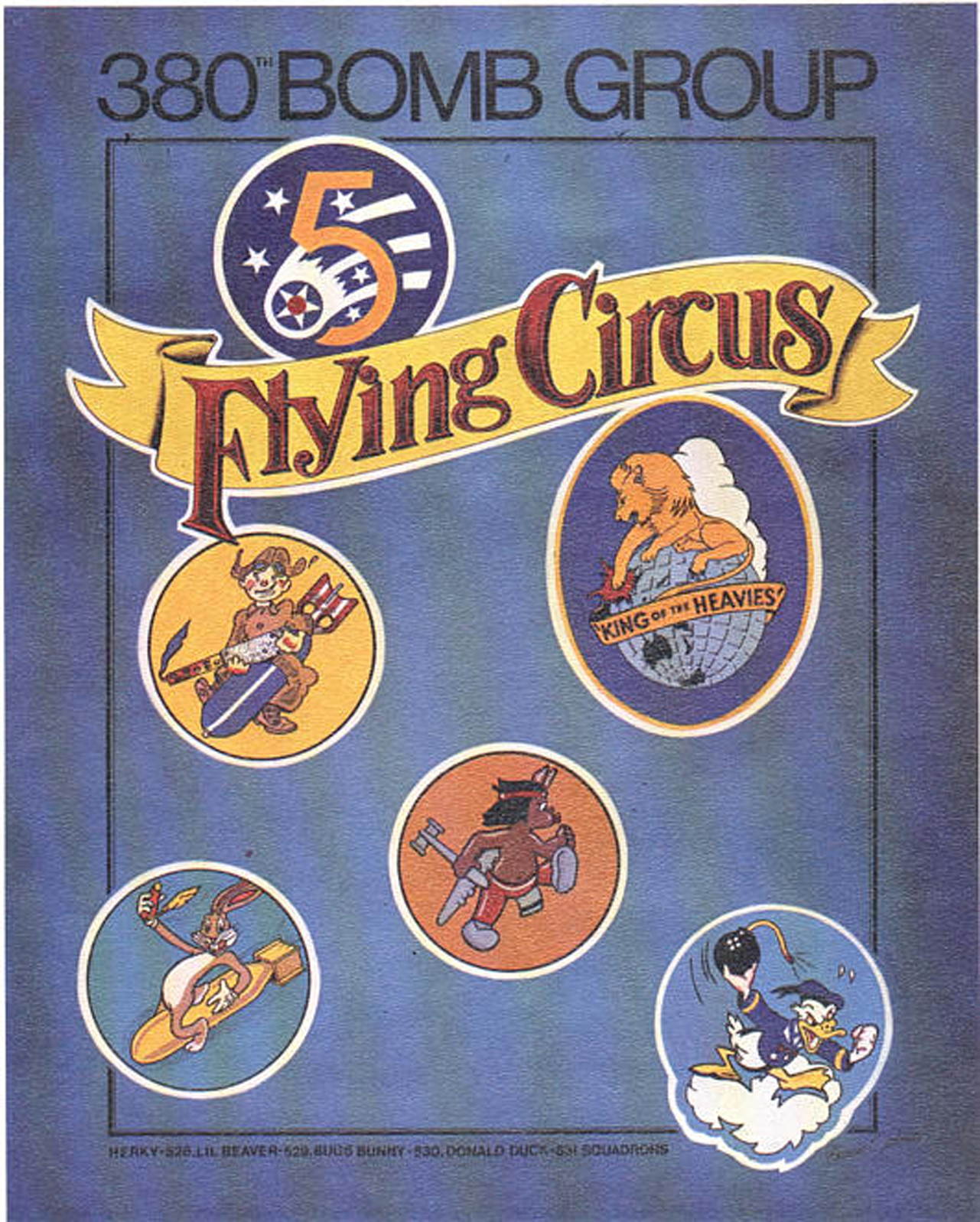|
380th Bomb
Group Association Newsletter #51 - Summer 2012 |

|
PRISONERS OF WAR
From Ohfuna, Ashio, Niigata and other infamous prison camps came our pale emaciated comrades who had been captured. These men, so newly risen from the dead, symbolized the war's end to the Flying Circus when they visited the camp at Okinawa.
"Don't you remember me?" The emaciated fellow in the misfit uniform asked, "I'm McFerron the navigator on John Farrington's crew. Porky McFerron." Ray Jackson and Tom Hunt looked at him with slow recognition. Yes, the thin face bore a family likeness to McFerron; it was when he laughed that you realized that it really was the same man. Others of the old timers gathered around -- Joe Sprague came running out of the orderly room when he heard the news, Jim Ruth and Danhart hurried out of their tent to see if it was really true. Even men to whom McFerron was just a name, a part of the saga of the Group, wanted to see him and shake hands with him.
This same scene was being duplicated in the other Squadrons, as the Prisoners of War returned -- Paul Jones, Chester Brown, Harold Van Wormer, Louis Banka and others. To the Flying Circus this was the symbol of war's end, far more real than the fireworks display on Okinawa or Mindoro, more real even than our own prospects of an early return to the States. For these men were returning from the lost. Some of them had been in Japanese prisons for over two years and others for months but all of them had been mourned as dead by the men who flew and lived with them. Now, here they were, thin and raunchy it is true, but alive and back with the outfit.
The stories of their capture differed widely and sometimes among men on each of the crews, but when it came to the story of prison life there was a horrible uniformity -- it was the story of starvation. From the day of capture until the day they were liberated these men were on a starvation diet, constantly fighting against hunger. Their days were a period of hunger lessened but not broken by three bowls of soupy gruel which constituted their meals. Their conversations were dominated by discussions of the relative nutritional value of foods or the planning of meals to be eaten when liberation finally came. And at night when they slept, their dreams fulfilled their wish to eat and they dreamed of food. One of our men, Sgt. Edward Gill, who was the only survivor when Thornton's plane went down, could not endure the conditions and died of malnutrition just a few days before the prisoners were liberated.
"It got so bad in the spring of the year that we asked permission to go out and pick leaves off trees to put in the soup for nourishment. In the winter time we were so damned starved that our bodies wouldn't generate enough heat to keep us warm."
All of the men lost from forty to seventy pounds during their imprisonment. Naturally they suffered from all of the diseases that their condition left them prey to. Lt. Russell and Lt. Stansbury had both been in the hospital with Beri-Beri. Jack Lovett lost weight until he was a skeleton of 90 pounds and was unable to stand before they shipped him to the hospital. All of the men suffered from colds and GIs. They were treated by an Allied medical officer but he was not given adequate supplies to do the job. Paul Jones mentioned that their interpreter also claimed to be a doctor and insisted on treating men who reported on sick call by applying burning punk to various parts of their bodies (shades piles the witch doctor!). "I even saw this joker burn one boy on the head as a treatment for piles!"
Most of the men went through the strange experience of being bombed by the Flying Circus before they were transferred to prison camps in Japan. On Ambon, Harold Van Wormer tells us that, "Fires burned all night on the strip after each bombing and the strip was usually out of operation for four or five days." Others were bombed at Kendari, Makassar, and Balikpapan and saw the results of our bombing at Pomelaa. From their reports it is evident that we did more shipping damage than we had thought and that our most glowing reports on the other targets were not exaggerations.
During their imprisonment all of them were forced to become slave labor. They worked in the copper mines at Ashio, or in brick yards at Yokahoma, on the docks loading and unloading ships, repairing trucks and equipment, digging fortifications in preparation for the invasion, and of course all the camp work.
The prisoners were able to keep themselves informed during their incarceration. Some of them were able to get hold of Japanese newspapers and pick up some news from the guards. Every new prisoner was, of course, a source of news and the men kept in touch with our advance toward Japan. Then too, there was the direct evidence of our progress -– the bombings. Several of them were burned out of their camp near Yokahama when we fire-bombed the town. The increased size of the bomber formations gave them an idea as to the strength we were mustering, and when they saw the P-51 escort, they knew that we had bases somewhere near and rightly guessed them to be on Iwo. The Japanese told them of Germany's surrender but attempted to minimize the importance of it.
The way that the men finally learned of the Japanese surrender is typical of how news reached them. On the 15th of August, all the guards were called to hear the Emperor's broadcast. Many of them had the weird idea that they were about to learn of great Japanese victories. The prisoners couldn't understand the broadcast but after it was over they knew from the guards' faces that it had been bad news. They concluded that they had either announced that the war was over or that the Americans had made a landing. They figured that there was not enough excitement for it to have been a landing and decided that the war was over.
Soon after this B-29s and Navy fighters came over the camps to drop supplies. "A Navy plane came over and did victory rolls and gave us a terrific buzz job," Tracy DuMont said. "I saw some of the boys standing out there watching them crying like kids, they were so happy."
In some camps rescue teams were dropped but in most the prisoners simply demanded that the guards give up their guns and took over the camp. Amazing as it may seem, the Japanese did turn the camps over to the prisoners on demand before a single soldier landed on Japan from the outside. The POWs left their camps and went into the towns and either commandeered food or traded old clothing for it. Then they took over a railroad and ran a train to Tokyo.
"The first American that I saw when we got into Tokyo was a nurse. Damned if it didn't bring tears to my eyes. She had just got off the boat with the first contingent of troops. Then we saw the soldiers and we kept asking ourselves, 'Did we once look as big and healthy as that?'"
From THE FLYING CIRCUS, THE HISTORY OF THE 380th BOMB GROUP, Fain et al., 1946, pp. 64-65 (copyright expired, public domain)
Return to Newsletter #51 Topics page
Last updated:
24 March 2014

